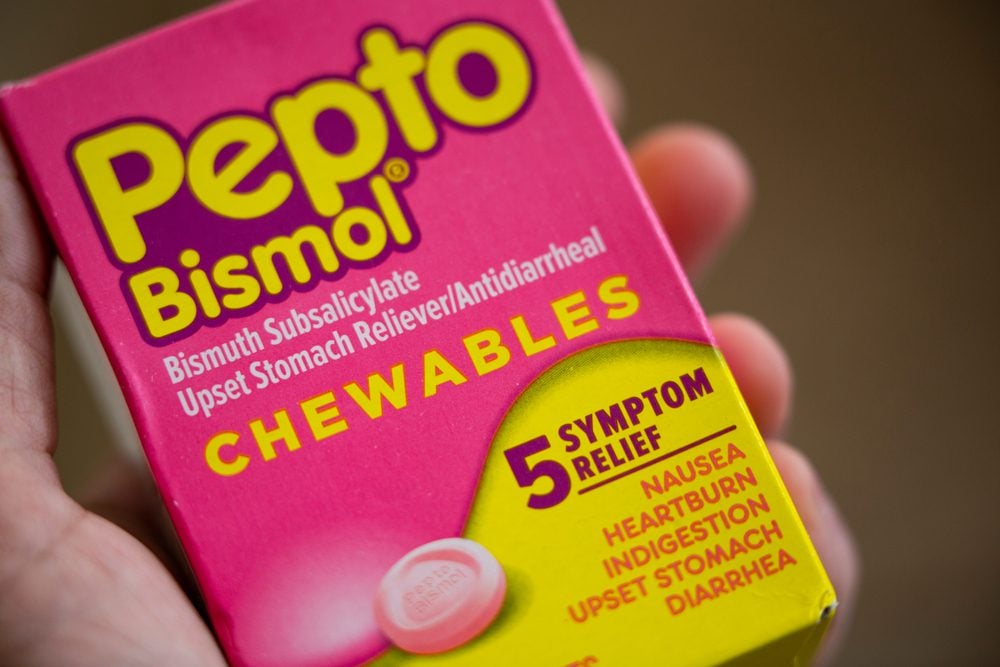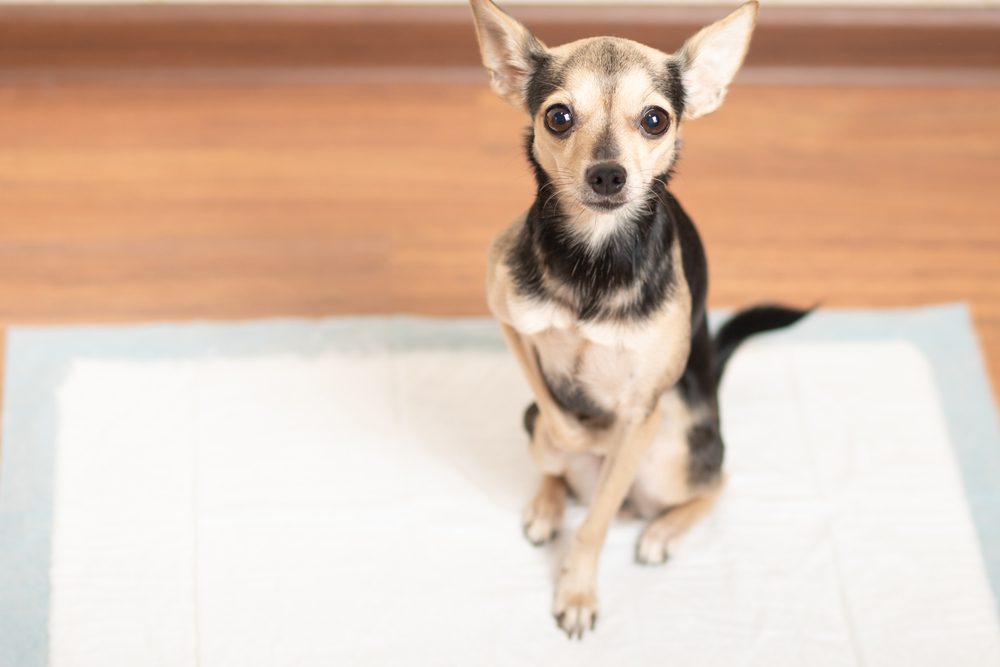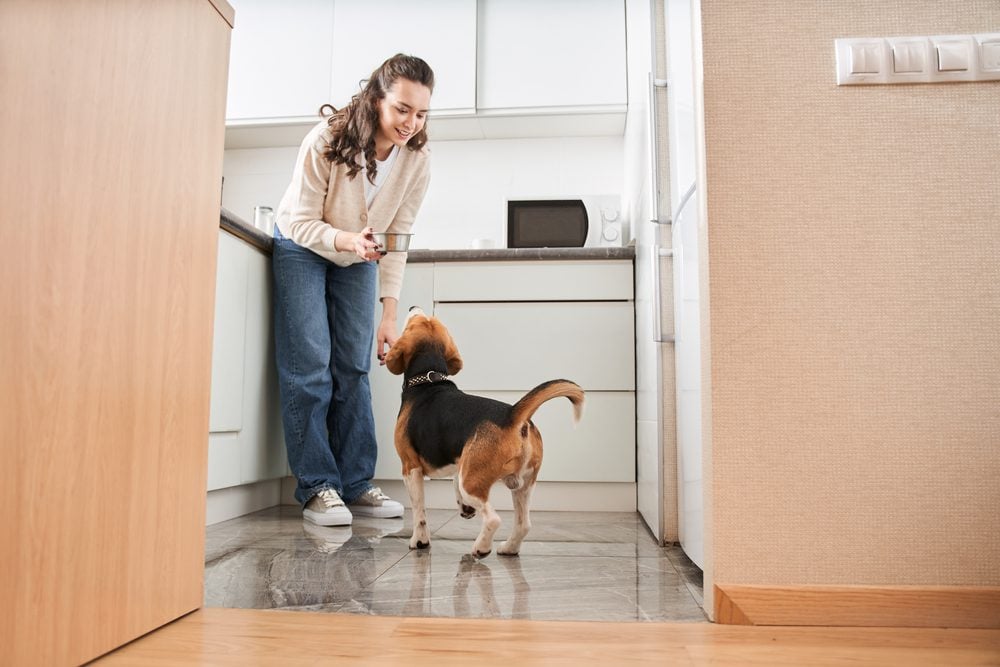Pepto Bismol for Dogs: The Little Pink Pill for Upset Stomachs

Table of Contents
Pepto Bismol is an over-the-counter available, human-grade stomach soother best known for its vivid pink color. But is it safe to share this popular pink liquid with your dog when going through a diarrhea bout? In this article, we will talk about Pepto Bismol for dog diarrhea.
A study evaluating the frequency of diarrhea in pets showed that 14.9% of the dogs had at least one diarrhea episode within the last two weeks. This wide prevalence accents the importance of early management as well as having a dog-friendly, antidiarrheal drug at hand.
Keep reading to learn everything you need to know about Pepto Bismol for dogs. We will discuss both the benefits and the risks and give helpful usage tips. Finally, we will explain when to put the pink Pepto Bismol liquid or tablet aside and call your trusted vet.
Can I Give My Dog Pepto Bismol?

Yes, you can give your dog Pepto Bismol, but you need to be cautious – do not exceed the recommended dosage and limit the duration of the treatment as this medication is not intended for long-term use.
Pepto Bismol is the popular brand name for the active ingredient bismuth subsalicylate – a bismuth salt of salicylic acid with strong antacid, antiemetic, and anti-inflammatory properties.
If possible, instead of using the human version of Pepto Bismol, you can give your dog Vets Preferred Advanced Anti-Diarrhea for Dogs.
- Soothe your pet’s upset stomach and stop their diarrhea with the advanced diarrhea medicine for dogs.
- Made in the USA under strict supervision to ensure optimum quality.
- Has fast absorbent action, which helps alleviate the irritation, discomfort, and cramping associated with dog diarrhea within 2-3 days.
When to Use Pepto Bismol for Dogs
The exact working mechanism of bismuth subsalicylate is unknown, but the drug is efficient in managing diarrhea, indigestion, heartburn, nausea, and stomach upset. It is also helpful for relieving abdominal cramps.
From what is established, here are the acting pathways of Pepto Bismol’s active ingredient:
- It increases the intestinal wall’s ability to absorb fluid and electrolytes.
- The salicylate component reduces inflammation and irritation of the gastrointestinal lining.
- It decreases stomach motility and prevents cramps-causing hypermotility.
- The salicylic acid has antibacterial properties (can kill harmful bacteria).
- It neutralizes toxins produced by E. coli (one of the most common causes of diarrhea).
From what is described, it is safe to assume that you can use Pepto Bismol when your pup has an upset tummy accompanied by diarrhea bouts.
Obviously, not all diarrhea triggers respond to bismuth subsalicylate. However, it is worth trying to manage the situation using something you can easily find in your medicine cabinet – the popular Pepto Bismol.
Knowing when to stop using Pepto Bismol is just as important as knowing when to use it. Since Pepto Bismol manages diarrhea in 24 hours and is not intended for prolonged use, we recommend discontinuing the medication if your pet’s diarrhea does not resolve after two doses.
In such a case, it is time to call your trusted veterinarian, seek professional advice, and schedule an appointment. After all, some diarrhea causative agents require more potent prescription medications.
Benefits and Uses of Pepto Bismol for Dogs
Pepto Bismol is a first-aid in case your dog has diarrhea. In addition to managing the loose stool, bismuth subsalicylate will manage the underlying GI tract inflammation and irritation and relieve the accompanying abdominal cramping.
At this point, we should clear up the misinformation of using Pepto Bismol for hot spots on dogs. Many pet owners believe this drug makes a helpful home remedy for reducing hot spot skin itchiness.
First, there are no scientific studies or evidence suggesting bismuth subsalicylate is efficient in managing skin disorders. Second, when applied topically, Pepto Bismol can do more harm than good.
Namely, if you rub the liquid or crush a tablet on the hot spot, your dog will probably lick the content. Depending on the Pepto Bismol amount you used, the licking can result in a life-threatening overdose.
Potential Side Effects and Risks of Pepto Bismol for Dogs

Same as any other drug, Pepto Bismol can cause side effects in some sensitive dogs. Common side effects include:
- Temporary constipation
- Oddly colored stool (grey, green, black)
- Darkened tongue
Pepto Bismol can also cause some other side effects, but they are not that common. For example, the salicylic component can cause gastric bleeding. On the other hand, the bismuth component leads to black stool discoloration, thus masking the potential bleeding issue.
Additionally, Pepto Bismol tablets are opaque on x-rays and can be mistaken for metal foreign bodies. This is why you need to be transparent with your veterinarian in terms of OTC medications your dog has received.
Finally, while generally safe and efficient for pups, Pepto Bismol should not be used in:
- Dogs allergic to the active ingredient (bismuth subsalicylate)
- Young puppies, pregnant, and nursing bitches
- Dogs with bleeding disorders or recent anticoagulant poisoning
- Dogs taking antibiotics, aspirin, and NSAIDs
Pepto Bismol Dosage for Dogs
Pepto Bismol is available in three different forms: liquid, chewable tablets, and caplets.
The liquid form comes in two potencies – regular and ultra. Pepto Bismol Ultra contains twice the amount of active ingredient and must never be used in dogs. The caplet form should also be avoided.
Therefore, stick to the regular Pepto Bismol liquid and chewable tablets when using Pepto Bismol for dogs. And here are their right dosages:
- Liquid Pepto Bismol: 1 teaspoon or 5 ml per 10 pounds of body weight every 6 to 8 hours but no more than two to three doses or for longer than 24 hours. Following this guideline, a 20-pound dog would need two teaspoons and a 30-pound dog three teaspoons, thus making dosing fairly simple.
- Pepto Bismol tablets: the recommended dose is 8.5 mg per 1 pound of body weight. Meaning, a 10-pound dog needs 85 mg, which corresponds to 1/3 of the tablet. Calculating the correct tablet dose and cutting up the tablet into the right pieces can be tricky.
Adhering to the recommended dosage is critical as giving your dog too much Pepto Bismol can result in an overdose. A dog overdosed on bismuth subsalicylate will show the following signs and symptoms:
- Vomiting
- Diarrhea and bloody stool
- Rapid breathing
- Increased body temperature (fever)
- Generalized weakness
- Tremors and seizures
A Pepto Bismol dog overdose is considered a potentially life-threatening situation and requires urgent veterinary attention.
With the importance of the right Pepto Bismol dosage covered, it is time we explain how to give this medication to your dog.
If using the liquid version, all you need is a plastic syringe with no needle. Just fill the empty syringe with the right Pepto Bismol dose and squirt it directly into your dog’s mouth. Since Pepto Bismol tastes funny and you can divide the dose into several squirts.
On the other hand, if using Pepto Bismol chewable tablets, you have two options – letting your dog chew the medicine like it is a treat, or if your pup dislikes the taste, hide the tablet in the food or pill pocket.
Pepto Bismol for Dogs Usage Guidelines
If using off-brand Pepto Bismol products and formulations, ensure you read the label carefully and check for ingredients that can be toxic or otherwise harmful to dogs.
Also, keep in mind that drug interactions with bismuth subsalicylate are possible. Pepto Bismol interacts with certain antibiotics (tetracycline), blood thinners (aspirin), steroids, and non-steroid anti-inflammatory drugs (Rimadyl, Deramaxx).
If you do not have Pepto Bismol on hand or your dog is not the right candidate for this medicine, there are other alternatives for diarrhea management. Here is a short overview of what you can do:
- Feed a bland diet. Most diarrhea episodes are self-limiting and can be quickly solved by withholding food for a couple of hours and then offering a bland diet (plain and boiled white rice and chicken). The meals should be small in size but given frequently.
- Use a probiotic. Probiotics have robust anti-diarrhea features and can be used in conjunction with other medications. We recommend using the Honest Paws Pre + Probiotic Supplement for dogs as it contains various strains of good bacteria and healthy prebiotics.
- Add canned pumpkin. Canned pumpkin is extra efficient in managing diarrhea. Depending on your dog’s size, you can mix between ½ and four tablespoons of canned pumpkin to the dog’s regular food or to the white rice and chicken mixture. Just make sure you use plain canned pumpkin with no added spices.
- Other over-the-counter medications. Pepto Bismol is not the only OTC anti-diarrhea medication. Popular (safe and efficient) choices include:
- Pepcid (famotidine). Dogs need 10 mg per 20 pounds of body weight every 12 to 24 hours. Since the drug is not FDA-approved for use in dogs, we recommend talking to your vet before use. Also, avoid giving the tablet with food as it can decrease its efficacy (it works better on an empty stomach).
- Imodium (loperamide). The recommended dose is 2 mg per 40 pounds of body weight every 8 to 12 hours. You can give the med hidden in a pill pocket or inside a small chunk of food. Once again, consult with your veterinarian before using loperamide in your dog.
- Vets Preferred Advanced Anti-Diarrhea for Dogs. Is a fast acting absorbent action, which helps alleviate the irritation, discomfort, and cramping associated with dog diarrhea within 2-3 days. For dogs up to 15 pounds, use one teaspoon. Dogs 16-50 pounds can use two teaspoons, and for dogs over 51 pounds use three teaspoons.
Our Final Thoughts on Pepto Bismol for Dogs

Pepto Bismol is safe and efficient for dogs, but can be used only for a limited timeframe. Before use, you should always consult your veterinarian to insure correct dosage and use. There are several Pepto Bismol alternatives for diarrhea management, like Vets Preferred Advanced Anti-Diarrhea product that is specifically formulated for dogs.
Also, keep in mind that this article is informational. If you want to learn more about Pepto Bismol and your dog’s diarrhea episodes, please consult with your trusted veterinarian.

















